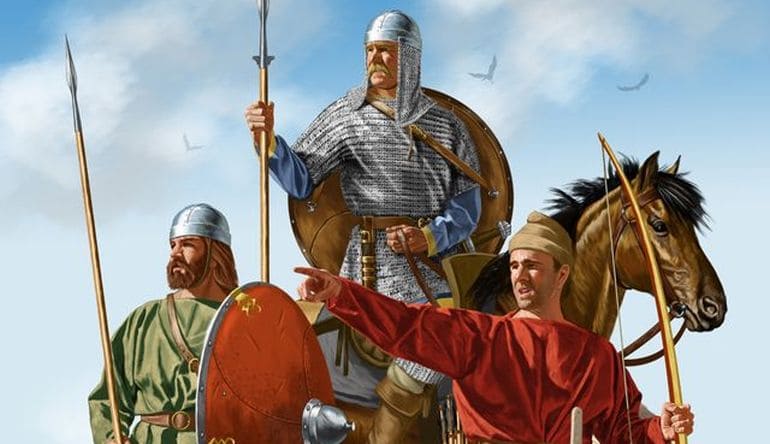Original inhabitants of the Sahara back when it was still wet and fertile were a group of veritable giants (reaching 2 meters) who lived in complex, sedentary fisher-societies alongside the banks of the various lakes, among them Lake Megachad, then the size of the Caspian Sea. 





The lakeside plains they inhabited often flooded, so they built large mounds to live upon. They also had advanced canoes with which they traversed the waterways. Through vast spans of the Sahara, a unified 'wavy line' style of pottery dominated, evidencing a shared culture 



In time, the climate began to shift, and the waters retreated. When this happened, the great lagoons and floodplains became for a time wide, fertile pastures. This drew the attention of incoming pastoralists, whose hitherto home further north was quickly drying. 

Ultimately, the cultures of these giant, aboriginal North Africans ("Mechtoids") were assimilated by the incoming pastoralists, and from their union arose probably the first Chadic and Berber peoples as we know them. 



The Sahara's final desertification had a shattering, knock-on effect on the peoples of the region. One group whose very origins may lie in this event is that of the Nilo-Saharans, whose original homeland may have been along the Yellow Nile, a now-vanished tributary of the Nile. 

When the great pasturelands of Northern Africa turned to sand, many people were forced north, towards the Barbary Coast.
Others, however, moved south. Nilotic peoples from South Sudan, though visually distinctly Sub-Saharan, carry North African genetic signatures.

Others, however, moved south. Nilotic peoples from South Sudan, though visually distinctly Sub-Saharan, carry North African genetic signatures.


The Fulani are another possibly result of this exodus. Denizens of the Sahel and West Africa and speakers of a sub-Saharan Niger–Congo language, they nevertheless maintain a heavily pastoralist lifestyle, and show male-line ties with Afroasiatics and Nilo-Saharans. 



It seems plausible to theorise that the knock-on effect of the drying Sahara led, in a sort of African Völkerwanderung, to a large-scale invasion south of various pastoralist tribes. In time, many were effectively assimilated, but their lifestyle lives on, as does trace ancestry. 

Not even mentioned in all this are the repeated ingressions of Eurasian ancestry into Chad & East Africa. Such ancestry seems to have come both from the Near East & Iberia, diffusing perhaps first along the northern shores before being thrust into the desert &, ultimately, south. 

• • •
Missing some Tweet in this thread? You can try to
force a refresh






















